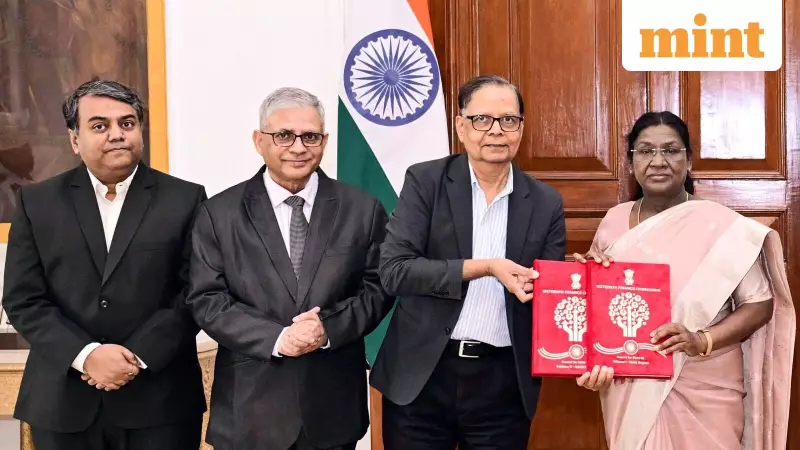
The Sixteenth Finance Commission, under the leadership of Dr Arvind Panagariya, officially presented its comprehensive report for the fiscal period 2026-31 to President Droupadi Murmu on Monday, according to an official statement from the finance ministry.
The crucial document, which remains confidential until its parliamentary presentation, outlines detailed recommendations that will determine how central financial resources are distributed among Indian states from 2026-27 through 2030-31.
States Compete for Larger Share of Central Funds
Multiple states have aggressively pushed for an increased portion of central tax revenues during their submissions to the commission. Many have advocated for raising the devolution percentage from the current 41% to as high as 50%, emphasizing that enhanced funding is essential for poverty alleviation, infrastructure development, and strengthening local economies.
Wealthier states including Tamil Nadu, Maharashtra, Karnataka, Telangana, and Gujarat have particularly stressed their substantial contributions to national economic growth. Tamil Nadu proposed allocating a 15% weight to a state's GDP contribution while reducing the "income distance" criterion from 45% to 35%, a parameter that currently benefits less developed states.
Disaster Management and Fiscal Flexibility Demands
States with natural disaster vulnerabilities have urgently requested the commission to implement targeted measures that would bolster economic resilience in high-risk zones and narrow development disparities with other regions. These states argue that current borrowing constraints leave insufficient room for reconstruction and climate adaptation efforts.
Under existing regulations, states can borrow up to 3% of their Gross State Domestic Product (GSDP), with an additional 0.5% available for those achieving specific reform benchmarks, particularly in the power sector. States are advocating for more flexible borrowing limits to address their unique financial challenges.
The commission conducted extensive consultations with union and state governments, local administrations, previous Finance Commission members, academic institutions, multilateral organizations, and domain experts during its comprehensive review process.
Historical Context and Future Implications
The previous Fifteenth Finance Commission had recommended states receive 41% of central taxes, representing a 1% reduction from the 42% share proposed by the Fourteenth Finance Commission. This adjustment accounted for the reorganization of Jammu and Kashmir and Ladakh as Union territories, which are no longer considered states for fiscal devolution purposes.
Manoj Panda, a member of the Sixteenth Finance Commission, indicated in a July interview that the panel might need to adjust standard parameters when calculating revenue distribution, responding to demands from more developed states that feel they contribute disproportionately to national tax collections without receiving adequate returns.
The complete report will be published in two volumes, with the first containing core recommendations and the second providing detailed annexures and supporting data. The document's recommendations are expected to significantly influence India's fiscal federalism landscape for the next five years.






